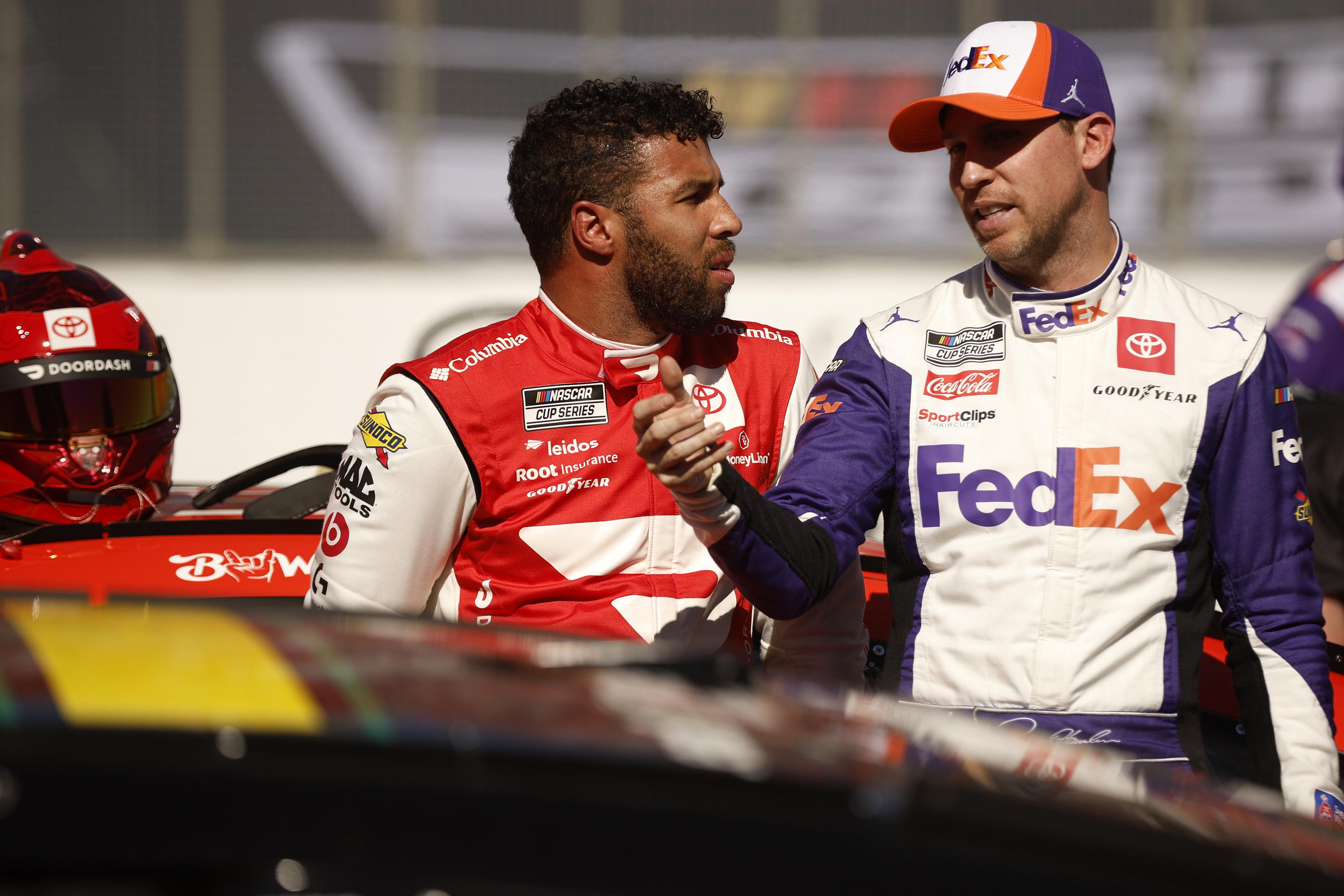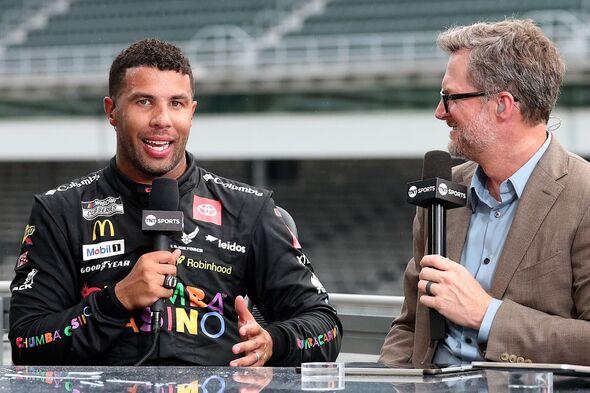Dale Earnhardt Jr. recently weighed in on the controversy involving Denny Hamlin and Bubba Wallace during the NASCAR Cup Series race at Kansas, offering his thoughts on the situation and acknowledging the emotional rollercoaster that often comes with the sport. In a recent podcast, Earnhardt, a former NASCAR driver and now a prominent commentator, expressed his understanding of the frustrations that drivers like Hamlin and Wallace can face, especially in a high-pressure environment like racing at the Kansas Speedway.
The incident in question occurred after the race when tensions flared between Denny Hamlin and Bubba Wallace. Wallace, who has often been in the spotlight for both his racing skills and his activism, was involved in an on-track altercation with Hamlin, a seasoned driver known for his aggressive racing style. The two drivers exchanged words, which quickly caught the attention of fans and commentators alike. The controversy revolved around a sequence of on-track decisions, including some racing tactics that many perceived as questionable, ultimately leading to the clash between Hamlin and Wallace.

Earnhardt Jr. believes that both drivers had legitimate reasons for their emotions, adding that the sport is a highly competitive environment where the stakes are high. As a former driver himself, Earnhardt understands the pressure of being on the track, where every decision can have massive consequences for the outcome of the race and, by extension, a driver’s career. He commented that while NASCAR fans may often see only the final moments of a heated exchange, there’s a lot that goes on in a driver’s mind before they reach that breaking point.

According to Earnhardt, Hamlin, being one of NASCAR’s most experienced drivers, has been through similar battles in his career. He has faced criticism and controversy over the years for his sometimes fiery temper and aggressive tactics. However, Earnhardt pointed out that such behavior, while often frowned upon, is part of what makes Hamlin a strong contender in NASCAR. He argued that, in the heat of the moment, Hamlin had every right to be frustrated given the competitive nature of the sport. The clash with Wallace was not an isolated incident but rather a manifestation of the pressures that accumulate during a race, which can sometimes result in on-track aggression.
On the other hand, Earnhardt Jr. also sympathized with Bubba Wallace. Wallace has often been under the microscope not just for his performance but for the larger issues he represents within NASCAR, including his outspoken stance on racial equality and his role as one of the few Black drivers in the series. Wallace’s career has been marked by a combination of triumphs and controversies, with moments of brilliance often overshadowed by the intense scrutiny that comes with his public persona. Earnhardt acknowledged that Wallace, too, had valid reasons for being upset during the Kansas race, particularly as a driver who is constantly under pressure to prove himself both on and off the track.
Earnhardt noted that racing can be an emotional sport, and sometimes drivers may make decisions based on their feelings, whether it be frustration, anger, or the will to win at all costs. He suggested that while these emotions may not always lead to the best outcomes, they are a natural part of the competition. “At the end of the day,” Earnhardt said, “drivers are human beings, and they’re out there fighting for their careers, their teams, and their legacies.” He went on to express his belief that both Hamlin and Wallace, despite the controversy, would ultimately move on from the incident and continue to race at the highest level.
Ultimately, Earnhardt Jr. emphasized that while the Kansas altercation was an unfortunate moment in the race, it was also a reminder of the intensity that NASCAR brings to the table. Racing at this level is not just about speed and strategy; it’s about the emotional investment drivers make, their passion for the sport, and their drive to succeed. The sport has always been defined by the personalities of its drivers, and moments of conflict—whether they occur on the track or off it—are part of what makes NASCAR so compelling to fans.
In closing, Earnhardt’s comments shed light on the complexities of racing, where emotions often run high, and the lines between sportsmanship and competition can sometimes blur. His understanding of both Hamlin’s and Wallace’s frustrations serves as a reminder that NASCAR is not just a sport of speed, but one of immense mental and emotional challenges, where every race can feel like a fight for survival.





